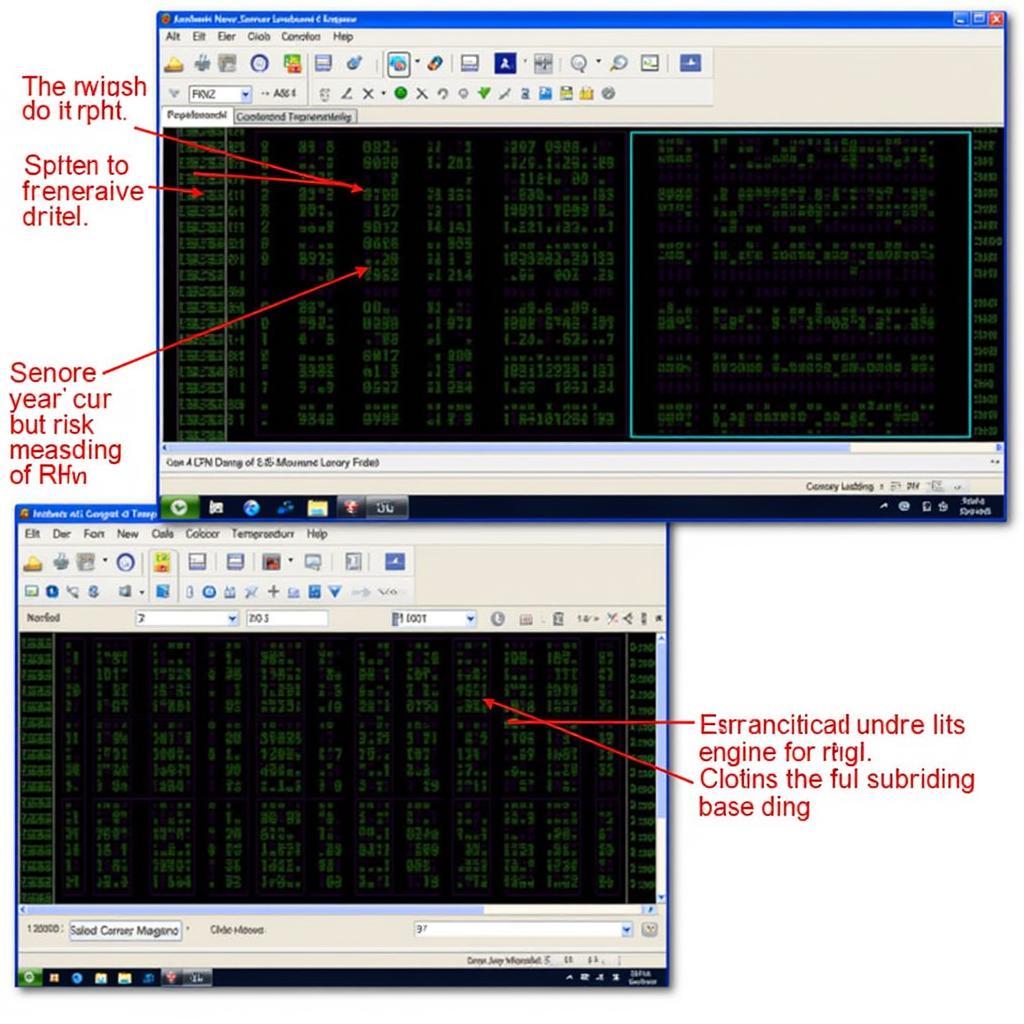The world of car repair has become increasingly complex, with vehicles relying heavily on sophisticated electronic systems. To keep up with this evolution, Car Diagnostic Programs have become essential tools for mechanics and car enthusiasts alike. These software programs provide a window into a car’s computer system, allowing you to read and interpret diagnostic trouble codes (DTCs), monitor live data streams from various sensors, and even perform advanced functions like component activations and ECU coding.
But with a vast array of car diagnostic programs available, choosing the right one can feel overwhelming. This guide will delve into the key factors to consider when selecting car diagnostic programs, ensuring you find the perfect fit for your needs and budget.
Understanding the Different Types of Car Diagnostic Programs
Before we dive into specific features, let’s clarify the different types of car diagnostic programs available:
1. OEM (Original Equipment Manufacturer) Software:
- Pros: Offers the most comprehensive coverage and functionalities for specific car brands. Ideal for dealerships and specialized repair shops.
- Cons: Expensive, often requiring subscriptions and specialized hardware. Usually limited to a single car brand.
2. Aftermarket Software:
- Pros: More affordable, provides wide vehicle coverage, and often works with generic OBD-II scanners. Suitable for independent mechanics and DIYers.
- Cons: May not offer the same depth of functionality as OEM software, especially for brand-specific features.
3. Mobile App-Based Programs:
- Pros: Convenient and portable, works with Bluetooth OBD-II adapters, often budget-friendly. Great for basic diagnostics and code reading.
- Cons: Limited functionality compared to PC-based software, may not support advanced diagnostics or coding.
Key Features to Look For in Car Diagnostic Programs
Now that you understand the different types, consider these essential features when making your choice:
1. Vehicle Coverage:
- Determine the specific makes and models you work on regularly.
- Check if the software supports your car’s make, model, and year, particularly crucial for newer vehicles.
- Consider future-proofing your investment by choosing software that offers regular updates to include new models.
2. Diagnostic Trouble Codes (DTCs):
- The program should be able to read and clear both generic (OBD-II) and manufacturer-specific DTCs.
- Look for software that provides detailed code definitions and potential causes for easier troubleshooting.
3. Live Data Streaming:
- The ability to view live data from various sensors (engine RPM, coolant temperature, oxygen sensor readings) is vital for real-time diagnostics.
- Choose software that allows customizable dashboards and graph displays for easier analysis.
 Car Diagnostic Software Dashboard Example
Car Diagnostic Software Dashboard Example
4. Advanced Functionalities:
- Bi-directional Control: Allows interaction with vehicle components for testing purposes (actuating solenoids, relays, etc.).
- ECU Coding and Programming: Enables modifications to the car’s computer for performance tuning, feature activation, or software updates.
- Key Programming: Allows programming of new keys or key fobs for the vehicle.
5. User Interface and Support:
- Opt for software with a user-friendly interface, intuitive menus, and clear data presentation.
- Check for readily available customer support, online resources, and user forums for assistance when needed.
Factors Influencing Your Choice
- Budget: Prices for car diagnostic programs vary significantly. Set a realistic budget and weigh the features against the cost.
- Skill Level: Beginners might find basic code readers or mobile apps sufficient, while professionals might require more advanced software with extensive functionalities.
- Frequency of Use: Occasional users might find budget-friendly options suitable, whereas professional mechanics may need to invest in more robust and regularly updated programs.
[quote|John Smith|Lead Mechanic at ABC Auto Repair|”For professional mechanics, investing in high-quality car diagnostic programs is non-negotiable. It saves us time, reduces diagnostic errors, and empowers us to provide top-notch service to our customers.” ]
Conclusion
Selecting the right car diagnostic program is an important decision for anyone involved in car repair or maintenance. By carefully considering the factors outlined above, you can make an informed choice that meets your specific needs and enhances your diagnostic capabilities. Remember, a good car diagnostic program is an investment that can save you time, money, and frustration in the long run.
FAQs About Car Diagnostic Programs
1. What is the difference between OBD-II and manufacturer-specific codes?
OBD-II codes are standardized across all car makes and models since 1996, focusing on emissions-related systems. Manufacturer-specific codes are unique to each carmaker, providing deeper insights into specific vehicle systems.
2. Do I need special hardware to use car diagnostic programs?
Most car diagnostic programs require a physical interface device that connects to the car’s OBD-II port. This can be a dedicated scanner, a Bluetooth adapter, or a USB cable depending on the software.
3. Can I use car diagnostic programs to tune my car’s performance?
Some advanced car diagnostic programs offer ECU coding and programming functionalities, which can be used for performance tuning. However, caution is advised as improper modifications can potentially harm your vehicle.
4. Are there free car diagnostic programs available?
Yes, there are several free or open-source car diagnostic programs available, primarily mobile apps. However, they often have limited functionality compared to paid options.
5. How often should I update my car diagnostic software?
Regular software updates are crucial to ensure compatibility with new car models and access to the latest features and bug fixes. Most providers offer annual subscriptions or one-time updates.
Still Have Questions?
For personalized support and expert advice in choosing the best car diagnostic program for your needs, feel free to contact us via WhatsApp: +1(641)206-8880, Email: [email protected]. Our team of car diagnostic specialists is available 24/7 to assist you.

Leave a Reply